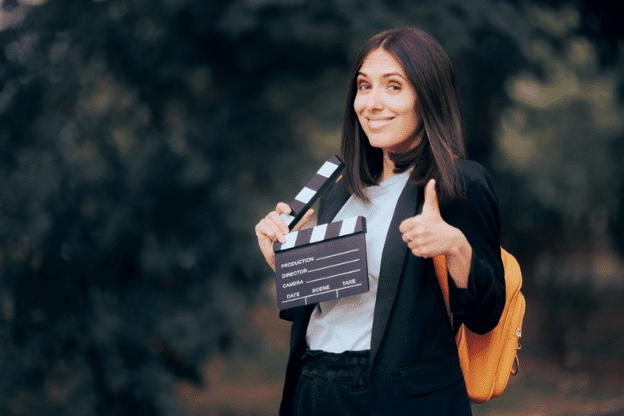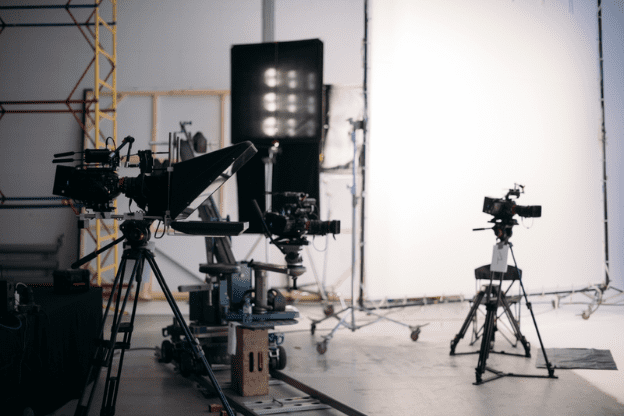
Aspiring filmmakers and seasoned professionals alike continuously seek new techniques to elevate their craft. Mastering innovative filmmaking techniques not only enhances your storytelling ability but also sets you apart in a competitive industry. Whether you're enrolled in filmmaking classes or studying at a prestigious filmmaking institute, these game-changing techniques are essential for every filmmaker.
| Introduction |
|---|
| The Importance of Pre-Visualization |
| Mastering the One-Take Shot |
| Dynamic Camera Movements |
| Using Natural Light |
| Sound Design and Mixing |
| Editing for Pace and Rhythm |
| Innovative Use of Props and Sets |
| Effective Use of Visual Effects (VFX) |
| Color Grading for Mood and Atmosphere |
| The Power of Subtext in Storytelling |
| Exploring Filmmaking Institutes and Classes |
| The Role of Filmmaking Schools in Career Development |
| Choosing the Right Filmmaking Course |
| The Importance of Film Theory and History |
| FAQs |
| Conclusion |
Pre-visualization, or pre-vis, is a technique that allows filmmakers to plan out scenes before actual filming begins. This method involves creating detailed storyboards, animatics, or even 3D models of scenes. By visualizing scenes ahead of time, you can anticipate potential issues, make creative decisions early, and streamline the production process. Pre-vis is an indispensable tool taught in filmmaking classes and at the best filmmaking schools, ensuring you have a clear vision before stepping on set.

One-take shots, or long takes, are a powerful filmmaking technique that involves filming a scene without cuts. This technique creates a sense of realism and immersion, drawing the audience into the story. It requires meticulous planning, precise choreography, and seamless coordination among the cast and crew. Film institutes in Noida and other top filmmaking schools emphasize the importance of one-take shots, as they challenge filmmakers to think creatively and work efficiently under pressure.
Dynamic camera movements, such as dolly shots, crane shots, and Steadicam shots, add a layer of visual interest and emotion to a film. These movements guide the viewer's eye, create tension, and enhance the storytelling experience. Filmmaking courses often include practical training on how to execute these movements effectively, helping students understand the impact of camera work on narrative and mood.
Read About: - 6 Key Reasons Why Our Photography Course Will Elevate Your Skills

Natural light is a cost-effective and aesthetically pleasing lighting option for filmmakers. Learning to manipulate natural light to your advantage can result in beautiful, realistic scenes. This technique requires a keen understanding of weather patterns, time of day, and location scouting. Filmmaking institutes teach students how to harness natural light, ensuring they can create stunning visuals without relying heavily on artificial lighting setups.

Sound design and mixing are critical components of filmmaking that significantly influence the audience's experience. Effective sound design includes creating ambient sounds, sound effects, and dialogue clarity. Mixing involves balancing these elements to produce a cohesive audio experience. Filmmaking schools prioritize sound design in their curriculum, recognizing its importance in building atmosphere and emotional depth.
Editing is where a film truly comes to life. The pace and rhythm of editing can dictate the film's emotional tone and narrative flow. Techniques such as cutting on action, cross-cutting, and montage can dramatically affect how a story is perceived. Best filmmaking schools provide in-depth training on various editing styles and software, helping students develop a keen eye for detail and timing.
Creative use of props and sets can transform an ordinary scene into an extraordinary one. This technique involves thinking outside the box and using everyday items in unexpected ways to enhance the story. Filmmaking courses encourage students to experiment with props and set design, fostering innovation and creativity.

Visual effects (VFX) have revolutionized the filmmaking industry, allowing filmmakers to create worlds and scenes that were once impossible. Mastering VFX involves learning software like Adobe After Effects and industry-standard tools. Filmmaking institutes, especially those in tech hubs like Noida, offer specialized courses in VFX, ensuring students are well-versed in the latest techniques and technologies.
Color grading is a post-production process that adjusts the color and tones of footage to achieve a specific look or mood. It can dramatically alter the visual impact of a film, enhancing the storytelling. Filmmaking schools emphasize the importance of color grading, teaching students how to use software like DaVinci Resolve to achieve professional-grade results.
Subtext is the underlying meaning behind dialogue and actions in a film. It adds depth to characters and stories, engaging the audience on a deeper level. Understanding and utilizing subtext is a crucial storytelling technique taught in advanced filmmaking courses. Filmmakers who master subtext can create more compelling and emotionally resonant films.
To master these game-changing filmmaking techniques, enrolling in reputable filmmaking classes or institutes is essential. Film institutes in Noida and other prominent locations offer comprehensive programs that cover all aspects of filmmaking, from pre-production to post-production. These institutes provide hands-on experience, access to state-of-the-art equipment, and guidance from industry professionals.

Filmmaking schools play a crucial role in shaping the careers of aspiring filmmakers. They provide not only technical training but also opportunities for networking, internships, and collaborations. The best filmmaking schools have strong industry connections, which can be invaluable for students looking to break into the film industry.
Selecting the right filmmaking course depends on your career goals and interests. Whether you're interested in directing, cinematography, screenwriting, or VFX, there are specialized courses available to suit your needs. Researching and comparing different programs, visiting campuses, and speaking with alumni can help you make an informed decision.
One of the most significant advantages of attending a filmmaking institute is the hands-on experience and practical training you receive. Filmmaking is an art that is best learned by doing, and institutes provide ample opportunities for students to work on projects, collaborate with peers, and receive constructive feedback from instructors.

Top filmmaking schools are equipped with the latest cameras, lighting setups, editing suites, and VFX software. This access allows students to familiarize themselves with industry-standard tools and techniques, ensuring they are well-prepared for professional work. Institutes in tech-savvy regions like Noida often have partnerships with technology companies, providing students with unique learning opportunities.
A strong portfolio is essential for showcasing your skills and creativity to potential employers or collaborators. Filmmaking courses often include portfolio development as part of the curriculum, helping students compile their best work and present it in a professional manner. A well-crafted portfolio can significantly enhance your job prospects in the competitive film industry.
Networking is a critical component of a successful filmmaking career. Filmmaking schools provide numerous opportunities for students to connect with industry professionals, attend workshops, and participate in film festivals. Building a network of contacts can open doors to job opportunities, collaborations, and mentorships.

Understanding film theory and history is crucial for any filmmaker. It provides context for contemporary filmmaking practices and inspires creativity. Filmmaking classes include coursework on film theory, genres, and the evolution of cinema, ensuring students have a well-rounded education.
Every filmmaker has a unique voice and style that sets them apart. Filmmaking courses encourage students to explore different genres, experiment with various techniques, and find their distinct creative voice. Developing a personal style is key to standing out in the film industry.
Mastering these game-changing filmmaking techniques requires dedication, practice, and quality education. Whether you're studying at a film institute in Noida or attending filmmaking classes elsewhere, the skills and knowledge you gain will be invaluable in your filmmaking journey. Embrace these techniques, stay creative, and continue to push the boundaries of storytelling.
Essential techniques include pre-visualization, dynamic camera movements, and basic editing skills. Filmmaking classes often start with these fundamentals.
Improving sound design skills involves studying audio techniques, practicing with sound mixing software, and analyzing the sound design of professional films. Filmmaking institutes offer specialized courses in sound design.
Color grading enhances the visual storytelling by setting the mood and atmosphere of a film. It's a crucial post-production process taught in filmmaking schools.
One-take shots require meticulous planning, precise choreography, and seamless coordination among the cast and crew. They are often taught in advanced filmmaking courses.
Choosing the right course involves researching different programs, considering your career goals, visiting campuses, and speaking with alumni to make an informed decision.
Filmmaking schools provide technical training, hands-on experience, networking opportunities, and industry connections, all of which are crucial for career development in the film industry.